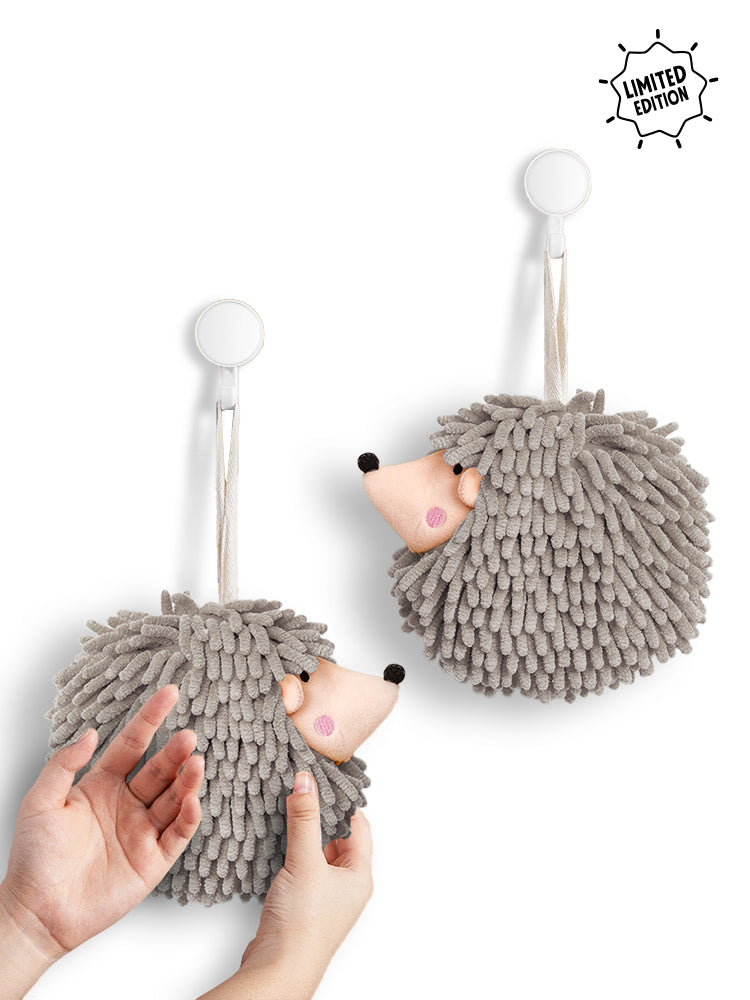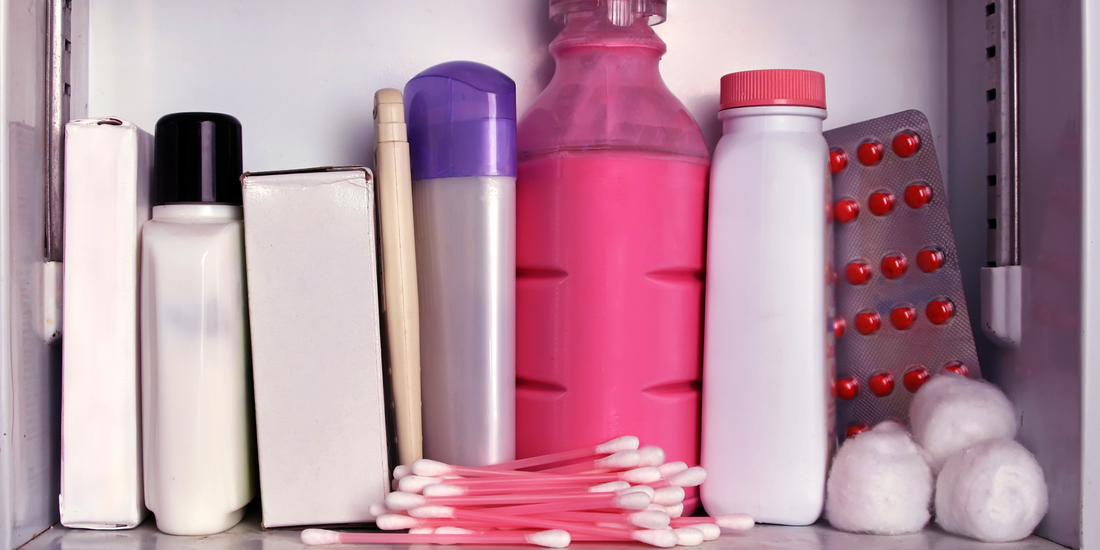
If it’s been a while since you last checked what’s stashed in your bathroom’s medicine cabinet, you might be surprised by what you find. Chances are, you’ll discover more than a few expired, half-used, or mystery products. These items not only take up valuable storage space but can also pose risks if used incorrectly or beyond their expiration dates. The good news is that taking 15 minutes to declutter now can get it organized and keep you and your family safe.
Whether you’re spring cleaning, organizing your home for upcoming guests, or simply can’t look at your messy medicine cabinet one more day, consider decluttering these items.
1. Expired Medications
It's a good idea to get in the habit of keeping medications in their original packaging, because it's important to be able to reference their expiration dates. Expired medications may not work as intended and, in some cases, can become unsafe to take. This applies to both prescription and over-the-counter (OTC) drugs, like pain relievers, allergy pills, and cold medicine.
If you're unsure whether a medication in the medicine cabinet is still effective, check the expiration date or consult your pharmacist. Be sure to safely dispose of prescriptions and OTC medications using a local drug take-back program. You can search year-round drop-off locations through the FDA or find information about the next national Take Back Day through the DEA. Avoid flushing them down the toilet unless the label specifically states that it is safe to do so.
Note that if your bathroom tends to get hot and humid (whether it’s because of your love of steamy showers or a lack of ventilation in the space) it’s best to store medications elsewhere. Although medicine cabinets are primarily located in bathrooms, humidity can cause medicines to have a shorter shelf life. So consider keeping them in the linen closet or a kitchen cabinet, wherever you won’t forget to look for them and where they’re out of reach of small hands.
2. Expired Sunscreen
Sunscreen generally has a shelf life of about three years, but this depends on it being stored correctly. It’s advisable to keep it out of direct sunlight and in a cool, dry place, so, again, if your bathroom often gets muggy, it’s important to keep this in mind when deciding if one of your bottles has gone bad. Over time, the active ingredients in sunscreen break down, making it less effective at blocking harmful UV rays.
Most sunscreen brands carry an expiration date, but if yours doesn’t have one (and you can’t remember when you purchased it), either err on the side of caution or use your best judgment. If the product looks, smells, or feels funky, it’s probably best to toss it. Clean out the expired sunscreen first before attempting to recycle the container. When you buy new sunscreen going forward, consider writing the purchase or open date on the bottle using a permanent marker. This way, you’ll remove the guesswork from decluttering it down the line!
3. Old Makeup and Skincare Products
By now, you might have noticed the theme of tossing old, or expired, items from this space. And that’s because your medicine cabinet is usually home to many things that go bad. If you use it to stash away your beauty products, it’s also smart to check their expiration dates or condition occasionally. While some products (like moisturizers and powders) can last a few years, others (especially eye products, like mascara) should be tossed and replaced every few months to prevent infection.
As with sunscreen, if there is no expiration date to be found, check your skincare or makeup to see if it smells unusual, has changed color or texture, or is so old you can't remember when you purchased it. Anything you put on your skin past its prime can cause irritation, so it’s not worth the risk. When decluttering your medicine cabinet, if you find unopened beauty products that are still good but you won’t use, consider donating them to a local women’s shelter or a non-profit organization, such as Dress for Success. They will accept unopened hygiene products or cosmetics so long as the expiration date is six or more months away.
4. Old First Aid Supplies
Technically, bandages don’t sport an expiration date, but over time, their adhesive parts can dry out and lose their stickiness. Additionally, if the individual packaging is torn or open, you can consider the bandages no longer sterile, which defeats their purpose. Review your first aid supplies and check for any bandages that are stiff, exposed, or otherwise look worse for the wear. Consider getting a small zippered pouch to store and protect bandages, whether you keep them in the medicine cabinet or decide to store elsewhere in the future.
While organizing your bandages, take a few minutes to check other first aid items as well. This includes antibiotic ointments, burn creams, and antiseptic wipes, as some of these things can degrade over time, reducing their effectiveness when it matters most. Dispose of old or expired products according to the label instructions and replenish your kit to ensure it’s always ready for use.
5. Duplicate or Unused Items
How many half-used bottles of cough syrup do you actually need? Probably not as many as are lurking on your medicine cabinet shelves. Duplicates (especially those nearing their expiration dates) are an excellent area to declutter or use up quickly if needed. Be honest about what you truly need and what’s simply taking up space. Perhaps there are things you use frequently (like half a dozen different serums) but have a better place to live, such as a vanity drawer or bathroom shelf.
6. Perfumes and Essential Oils
Not only can fragrances and essential oils expire, it’s recommended to keep them out of the bathroom entirely. Exposure to air, light, and heat can lead to the breakdown or oxidation of the ingredients, altering the scent and potentially causing skin irritation. When in doubt, perform a sniff test and trust your nose. To extend their lifespan and keep them smelling delightful, remove perfumes and essential oils from your medicine cabinet and store them in a cool, dry place instead.
Tips for Maintaining a Tidy Medicine Cabinet
Once you’ve cleared out the medicine cabinet clutter, follow these tips to keep it organized at all times:
Use clear bins or labeled containers: First, make sure containers fit the shallow depth of a medicine cabinet shelf. Then organize items by category or group, such as first aid, makeup, and sunscreen, and add labels to make it easy for everyone to find what they need.
Keep inventory: Slide a small sticky pad onto a medicine cabinet shelf and use it to jot down when you last replaced items and what needs restocking.
Perform regular maintenance: Every four to six months, make time to declutter, reassess, and reorganize your medicine cabinet. The whole process should take 15 or 20 minutes total and will go a long way in keeping it tidy.
Source: Cornetta, M. (2025g, May 10). 6 medicine cabinet items you should throw away right now. Better Homes & Gardens. https://www.bhg.com/throw-out-of-medicine-cabinet-11716025


